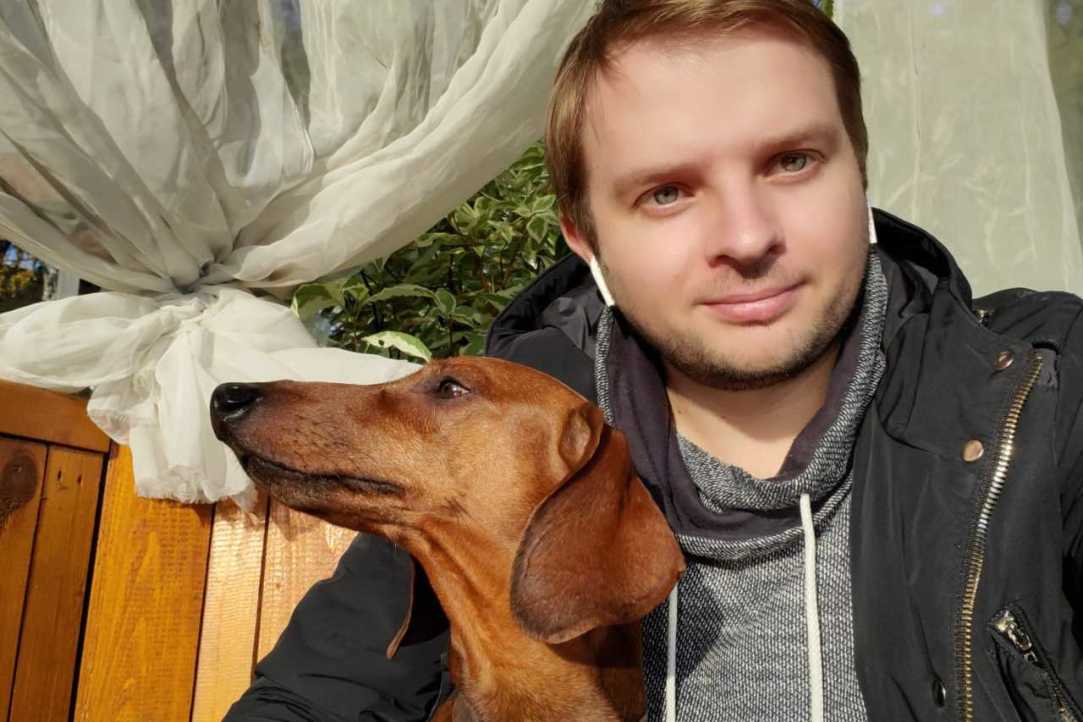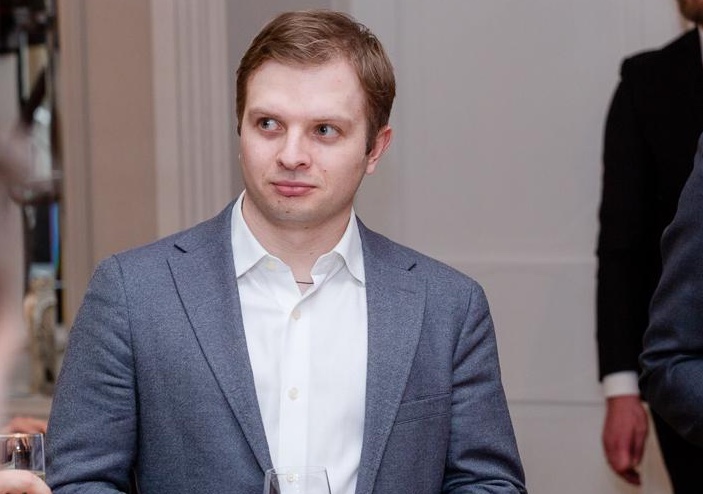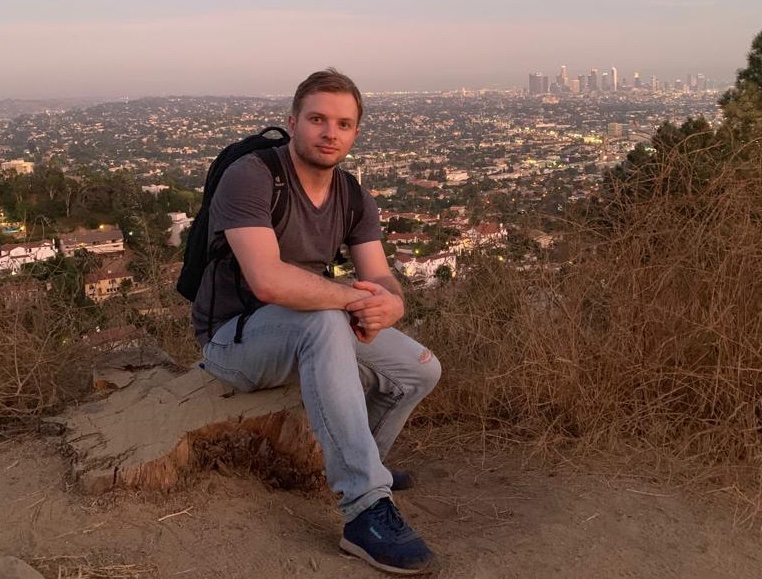"I Became Passionate About Corporate Finance Thanks to Graduates of ICEF"

Anton Budarov earned his bachelor's degree from ICEF in 2009 and currently serves as Deputy Director for Corporate Finance at Gazprombank. In this interview, Anton tells what makes Gazprombank a vibrant state-owned entity, how someone with a finance background can convert to journalism and back, and what M&A specialists do when a deal doesn’t go as planned.
How my parents chose ICEF
I chose HSE for its reputable track record. I actually had a choice of two options – to study management as a government-funded student or to study economics at a reduced tuition rate. At some point, ICEF appeared on the horizon, thanks to my parents who knew I was still hesitant about making the choice. They told me about ICEF and its double degree programme which seemed a much better choice with access to the resources of two reputable schools. It wasn’t only about quality education, it was about the opportunities for upward mobility. My parents saw this form of training as elitist – and ICEF is in many ways like a club-type school – setting it advantageously apart from other finance and economics schools.
It wasn’t until later that I discovered that my decision to enroll in ICEF was the right one: the knowledge it equipped me with has proved highly useful. With courses that are hands-on in nature and offering connection between fundamental education and business realities, ICEF was almost unrivalled in the mid-2000s.
Why ICEF is a special place
ICEF teaches you to stay focused on completing your tasks to achieve a planned outcome. The curriculum may seem narrow, with contents strictly selected to meet the British standard of academic depth and rigour. Many of my classmates who pursue careers in academia have been successful thanks to self-determination, desire to dig deeper and cultivate new abilities for better results – the skills that they have learned at ICEF that have made them good researchers and pathfinders.
Some of the courses were taught by the faculty of LSE, and there were training sessions delivered by business managers. One brilliant teacher we had for Corporate Finance was Artem Arkhipov, who worked at Sberbank back then and is currently a vice-president at UniCredit Bank.

And I particularly remember Yulia Chekunaeva and the charismatic, jesting manner in which she taught us banking and corporate finance. She knew how to break down the nuances. Artem and Yulia are both graduates of ICEF, and I see some really good practical benefits here: with experience as ICEF students, they had the first-hand knowledge of where their courses should be made simpler for us to benefit from them to the fullest. Thanks to the graduates of ICEF, I became passionate about corporate finance and fundamental business valuation. Having practicing experts as sources of knowledge is what I think HSE was missing out on and ICEF capitalized on.
How I became a journalist
After graduation, I got a job at RBC and was really thriving on the skills I acquired at ICEF as RBC’s economic journalist and analyst. I wrote macroeconomic reviews, explaining how particular events could affect the markets. My second line of work involved fundamental business valuation – something that RBC was new to at the time and received from me as a well-developed idea. As an RBC employee I had access to analytical findings of the world’s largest banks and providers of equity research and macroeconomic analysis. This gave me more insight into how valuation should be done and findings presented. I learned some really good techniques.
Then, I got poached by Rye, Man & Gor Securities, an independent investment house offering equity research and valuation of second- and third-tier stocks with high returns and high risk levels. I worked as an equity research analyst on petroleum and petrochemical stocks.
How I started a job at Gazprombank
After a few months at Rye, Man & Gor Securities I got an offer from Gazprombank to assume the post of M&A analyst in its corporate finance department. And just when I’d started my new job, another offer came – from one of the largest foreign bulge bracket banks (Note: Bulge bracket banks comprise the world’s largest multi-national investment banks whose clients are usually large corporations, institutional investors and governments) – which I had to turn down for ethical reasons. You can’t wear two hats, you know. I chose to stay and pursue career at Gazprombank. I have been working at Gazprombank since 2011 and am currently Deputy Director for Corporate Finance. We deal with M&A transactions and minority investments, providing counseling to both outside clients and internal entities.
At Gazprombank, our unit is like special squadron. Easily configurable, it gets deployed to the most challenging of missions
These ‘missions’ require us to be quick to respond to complex transactions. Our department boast truly unique experts with extensive experience at banks such as Goldman Sachs and Morgan Stanley. The people in my team had been with the Big Four. They are top market specialists who have vast knowledge and flexible mindset, although this latter quality may not be the most desired one in government agencies’ staff. This makes us capable of tackling some of the most complex transaction schemes on the client side.
Why Gazprombank is a vibrant workplace
Many people think of Gazprombank as a government agency that deals with boring projects, but let me reassure you that that’s not true. With all conservatism that Gazprombank has for risk management – like many other banking chains – its uniqueness lies in pursuing a whole range of activities that can satisfy career ambitions of professionals from different backgrounds.

At Gazprombank, there is a lot of room for trying your hand at different types of risk-involving products – complex restructurings, LBO, M&A, etc. This bank has a diverse portfolio you wouldn’t expect to see in a stated-owned bank and such a multi-skilled team.
I witnessed Gazprombank experience a major change over the past three years. There has been a series of transformations to enhance the workplace culture, increase investment in human capital and promote IT-related competencies and projects. The bank lays a lot of focus on retraining and awareness raising workshops for its units.
What M&A specialists do
My position involves everything from generating deals to attracting clients to following up on projects together with analysts and managers. We do classic M&A consulting, and we also act as a minority investor in the equity of swiftly growing, promising businesses. As someone working in M&A, I am responsible for negotiating, deal structuring and continuous progress monitoring, i.e. following up on the entire cycle from idea generation to client attraction (project initiation) to owner receiving funds through sell-side processes or shares or stocks in case of acquisition.
What I had to catch up on was negotiation skills and conflict management strategies
To give you an example, in one of our transactions the owner had the misfortune of mentioning in his private talk with buyers, overly optimistic valuations. They got him on tape and later used the recording when the expectations failed. Our role in resolving that conflict was ensuring the client achieving the valuation he expected. Another case was a latent conflict when the client suspected his employee on an in-house M&A deal of collaborating with buy-side competitors for a lucrative asset. That situation required a lot of maneuverability on our side to prevent data leaks and get things back on track. These examples aren’t commonplace, but they require a hefty dose of creativity – it’s like inventing moves when dealing with last-minute things. And neither of those cases was covered in any of my study books, although I still encounter them in my job.
What really comes in handy in my daily tasks is attention to detail and ability to handle vast amounts of information – the qualities instilled in me by ICEF. Also, it’s important to be able to read financial statements, process figures and make valuations. These would be core skills for early career professionals, while the next important step is to become a good negotiator and able to structure deals in line with Russian and international law and provide clients with sound exit strategies, among other skills.
Like all financial markets, ours has experienced a shift in focus. The IPO-related segments, which were earlier receiving active development, have given way to newly fueled M&A activity. While some companies are leaving the market, others still want to buy stocks. This means we won’t be left jobless on the M&A market in Russia.
How to begin a career at Gazprombank
My advice to early career professionals is test yourself by experiencing different companies and trying different lines of work. It’s a mistake to think that people land good jobs because they know somebody. One time, when Gazprombank needed more interns, we turned to ICEF Career Services. Students can join us without using hh.
Those of Gazprombank interns who prove themselves reflective, attentive to detail and creative enough, are often offered to continue as full-time employees. The qualities we are looking in our interviewees are proactive thinking and breadth of vision. It’s always interesting for us to hear your vision of the future of the economic sectors as investment targets from different perspectives and in different countries. We generally welcome global mindset, which is so characteristic of ICEF community members.
At the same time, I can’t say that Gazprombank is where you can expect a meteoric rise. While staff turnover can be almost zero with some units, productive employees with proven record are always an asset and can expect due recognition.
One more thing that makes ICEF graduates valuable talents is their ability to adjust – in terms of modes of thinking and capacity building as skills that come with international education. We know ICEF graduates to be competent analysts and critical thinkers whose arguments and observations build on solid skills, not fundamentals of the basic truths.